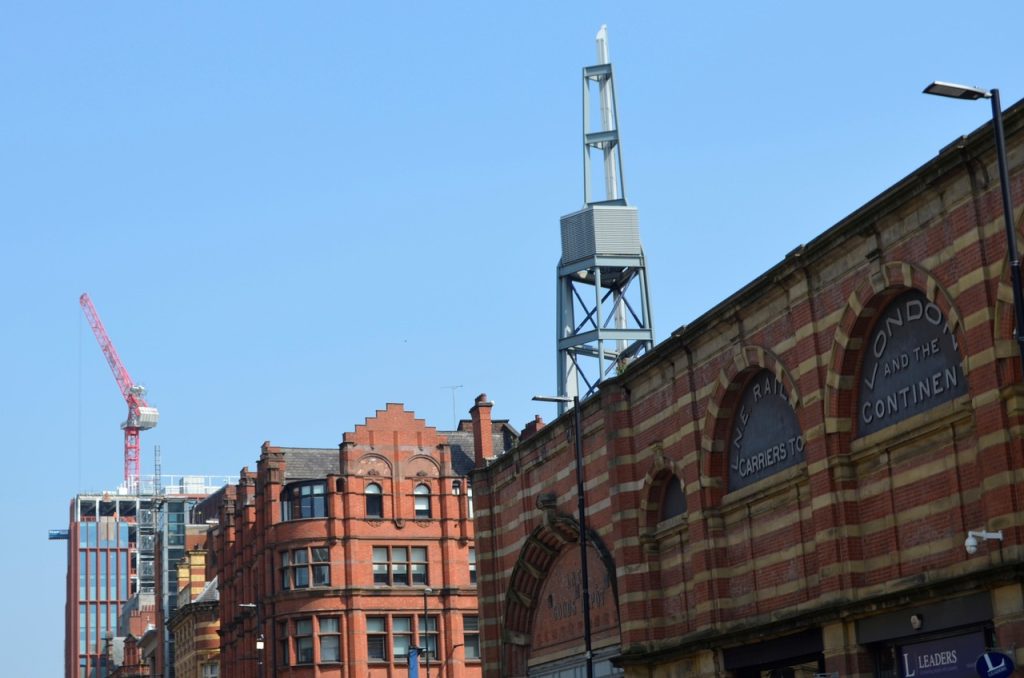The City of Manchester is fast evolving into a financial destination, and there are projections that the City could even rival London as a financial hub.
Manchester is popular for many reasons, ranging from the weather to eminent personalities, sports teams, and the presence of international companies spread across various sectors and industries. The City has emerged as one of the UK’s economic strongholds, with solid growth indices in areas like health, finance, education, living standards, entertainment, and investment in local talents, firms, and projects. Although several important issues still demand more attention, the City has grown in financial strength, with nearly 39% in GDP growth in the last decade, and these feats are sustained by implementing focused economic policies at the national and regional levels.
The Rise of Manchester in Finance
Manchester’s financial rise is thanks to the strategic policies and efforts to increase the number and quality of the workforce, diversify the economy across education, finance, real estate, entertainment, sports, textiles, trade, manufacturing, and others, and open up the City to local and international investors.
Manchester is also home to many financial tech (fintech) and financial services firms rapidly influencing internet users’ adoption of economic activities among internet users. Investment activities have increased, as evidenced by the increase in the number of people trading forex and investing in other industries in Manchester.

Source: Clare, via Pixabay
Experts predict the fintech industry will employ 10,000 more people and contribute £1 billion to the economy. Manchester-based fintech firms enjoy official support, local patronage, and access to capital from large financial institutions and fund managers.
With thousands of finance-related jobs in Manchester, the higher institutions in the City graduate hundreds of qualified talents who can find work within the sector and bring their skills to improve financial products and services.
In March this year, Mayor Andy Burnham signed a partnership with North Carolina to further trade and investment relations. At the event, Mayor Burnham expressed his desire for this to be “the first step towards stronger cooperation that will unlock real benefits for people and businesses in our ten boroughs.”
In October, Manchester Metropolitan University partnered with five other universities and provided a £1.2 million fund to firms in Greater Manchester’s digital and tech sector.
Manchester currently ranks second for foreign direct investments among UK cities, the first being London. While the City is considered a solid alternative to London, there are gaps that it must fill to rival the Capital city.
Manchester, with a £60 billion, 7 million population, and over 100,000 students, has managed to keep residential properties at 40% lower prices than London and has over 1,500 private businesses. The City also has several multi-million real estate investments and high-speed transportation networks.
In May, Manchester ranked first as the UK’s Best Large European City in the European Cities and Regions of the Future 2023/24 report by the Financial Times. The ranking is based on several factors: economic potential, conducive business conditions, connectivity, and plans.
The City leadership is working on projects and plans to raise the level of Manchester’s infrastructure by investing in urban regeneration, renewable energy, sustainability, and local talent programs to get the City ready for financial growth.
On March 21, 2023, Mayor Burnham led the ten local council Leaders to sign the much-anticipated devolution deal with the Levelling Up Minister, Dehenna Davison. The deal is expected to deliver greater autonomy to local councils, free up more funds for Greater Manchester, and improve transportation, housing, and business conditions in the City.
At the event, Dehenna Davison said: “I’m proud to have agreed a historic and trailblazing new devolution deal with the Greater Manchester Combined Authority, providing the Mayor with more powers, money and an even greater say on how this iconic region is run.”
The new deal includes the right to retain 100% of business rates for 10 years and a commitment to investing £400 million by 2026.
These would potentially increase the talented workforce and investors, and the resultant financial growth will see Manchester close the gap between it and London and increase various economic indices.
Manchester has strong potential to rival London as a financial hub with targeted talent growth, increased funding, and access to fintech solutions. The City must do more in commercial and residential structures, healthcare, and next-generation technologies.

Source: Miguel Arcanjo Saddi, via Pexels
Manchester’s Financial Future
Technological advances will greatly influence Manchester’s financial fortunes in diverse ways.
This is perhaps a reason for the increased funding of tech-driven programs and investments in the last year.
Improving working and living conditions will attract more talent to drive growth across the City’s sectors, and adopting technologies such as AI, cryptocurrency, and automation will see a more effective financial system.
Featured image source: Aleksejh, via Pixabay




